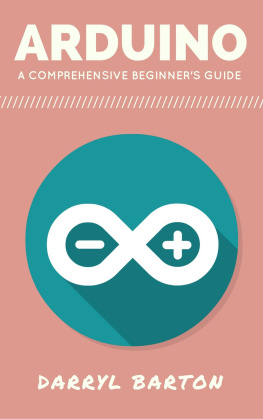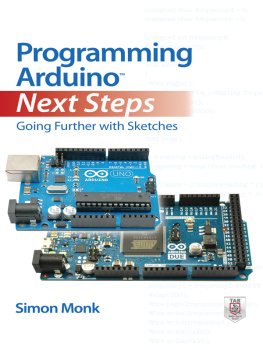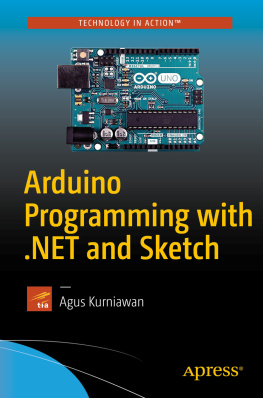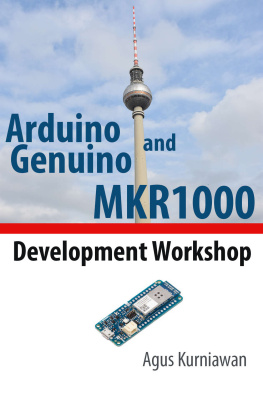Duckett George. - Arduino Stack Exchange: Questions and Answers
Here you can read online Duckett George. - Arduino Stack Exchange: Questions and Answers full text of the book (entire story) in english for free. Download pdf and epub, get meaning, cover and reviews about this ebook. genre: Computer. Description of the work, (preface) as well as reviews are available. Best literature library LitArk.com created for fans of good reading and offers a wide selection of genres:
Romance novel
Science fiction
Adventure
Detective
Science
History
Home and family
Prose
Art
Politics
Computer
Non-fiction
Religion
Business
Children
Humor
Choose a favorite category and find really read worthwhile books. Enjoy immersion in the world of imagination, feel the emotions of the characters or learn something new for yourself, make an fascinating discovery.

- Book:Arduino Stack Exchange: Questions and Answers
- Author:
- Genre:
- Rating:3 / 5
- Favourites:Add to favourites
- Your mark:
Arduino Stack Exchange: Questions and Answers: summary, description and annotation
We offer to read an annotation, description, summary or preface (depends on what the author of the book "Arduino Stack Exchange: Questions and Answers" wrote himself). If you haven't found the necessary information about the book — write in the comments, we will try to find it.
You can use this book to look up commonly asked questions, browse questions on a particular topic, compare answers to common topics, check out the original source and much more. This book has been designed to be very easy to use, with many internal links set up that makes browsing in many different ways possible.
Topics covered include: Arduino Uno, Programming, Serial, C++, Sensors, Pins, Uploading, Library, Timers, Power, ATMega328, Compile, Shields, Arduino Mega and many more
Duckett George.: author's other books
Who wrote Arduino Stack Exchange: Questions and Answers? Find out the surname, the name of the author of the book and a list of all author's works by series.




